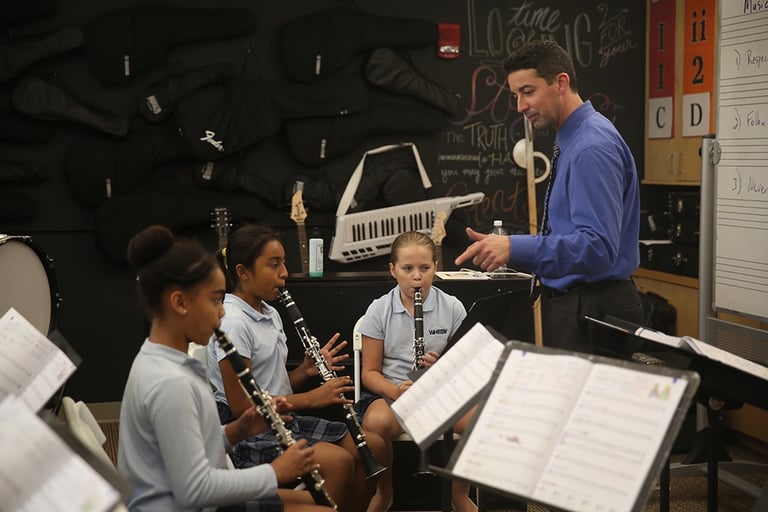When was the last time you learned something new? Did you have to learn any new jargon or terminology? How did you communicate your questions and/or your understanding as you were learning? Is it possible to answer any of the above questions without using general and specific language? This question is obviously rhetorical, but its answer drives the point that language is simply a part of everything we do.
As "experts of subject area language," teachers can help students develop awareness for the language that pertains to the subject they are studying.
Last year, I asked a student to choose an article to read on any topic of his choice. He chose an article about a Formula 1 driver. As we read the article, I had to stop several times and ask him to explain what different terms like "pole position," "pit wall," "MP4-5," and "TG184" meant. Having little background knowledge in car races, it was up to my student to help me understand the new Formula 1 language I was encountering.
Unlike my lesson in Formula 1, the roles in our classrooms are typically the other way around as we are delivering the concepts and content to students. But when we do, are we considering the language they need to understand the concepts? Do the students have the background knowledge to pick up this language quickly, or do we need to teach it more explicitly?
Why Every Teacher is a Language Teacher
This doesn’t apply to just one or two subject areas. Language is embedded in the concepts, contexts and big ideas across all subject areas. Further, in many cases, key terms and concepts transfer easily from one subject to another. However, there are instances when the same word in one subject may mean something completely different in another. Take the word "tone" for example. Think about what this term/concept means in literature class. What does it mean in music? How about art? How do we use it in language class? Helping students recognize these key terms and concepts, understand when they do and do not directly transfer, and how to use them to communicate is what makes every teacher a language teacher.
“But I teach x, I can’t even begin to know how to teach language!” This is an understandable reaction from teachers who are not trained to teach language and may have great discomfort at the idea of studying another language, let alone teaching one! The idea that every teacher teaches language doesn’t mean that every teacher needs to be a language expert, but rather, that they are experts of the language of their subject areas.

As "experts of subject area language," teachers can help students develop awareness for the language that pertains to the subject they are studying. With this awareness, students can be guided to understand both how to better communicate their understanding of subject concepts and content, in addition to recognizing how everyday, academic, and even subject specific language transfers across the curriculum.
Just like there are acceptable ways to communicate in different languages and cultures, there are appropriate ways to communicate in different subject areas. Not every class requires a lab report, a chart or graph, or an essay. However, there is a language, and a form, to these different communicative functions, and we cannot take for granted that students arrive to our classrooms prepared to communicate accurately and with the correct language. If they don’t learn how to do this in the classroom, where will they? As experts of subject area language, it is up to us to help students understand the best way to communicate their ideas and understanding of subject concepts.
So how do we do this? And when do teachers have time to add language lessons to their already busy lessons?
How many teachers review answers students have given and say, “hmm…that’s not really telling me what you know. I can’t tell if you understood this concept or not?” After reviewing work, teachers may realize they need to back track, make sure understanding is clear, and ask for students to communicate their knowledge again.
However, if we help students recognize the important language embedded in our lessons, units, assessments, etc, provide repeated exposure to this language, and develop their awareness of how to use language to communicate understanding, we may find that: 1. Students’ understanding of the subject matter comes more quickly, and 2. They can clearly communicate this understanding the first time, thus, saving class time in the long run.
To take steps toward developing students’ language across subject areas, we can start asking ourselves:
What key terms or new vocabulary will students see when reading this text, studying this unit, or exploring this concept?
- How do we let them know these terms are important?
- How do we give them practice using these terms in class, on homework, etc?
- How do we provide repeated exposure to the terms?
What do students need to do to show us their understanding?
- How will we be asking them to show their understanding?
- How will we let them know what an acceptable answer looks like?
Like the old adage, "Rome wasn’t built in a day,” correct language use and communication in subject areas doesn’t develop overnight. Teachers need to lay the groundwork by first identifying the language of the subject they are teaching. Then, they can start building a foundation for the students to acquire the subject language, transfer the language to other subjects, and use language accurately to communicate their understanding. This process doesn’t require expertise in language learning, but it does signify why every teacher is a language teacher.


